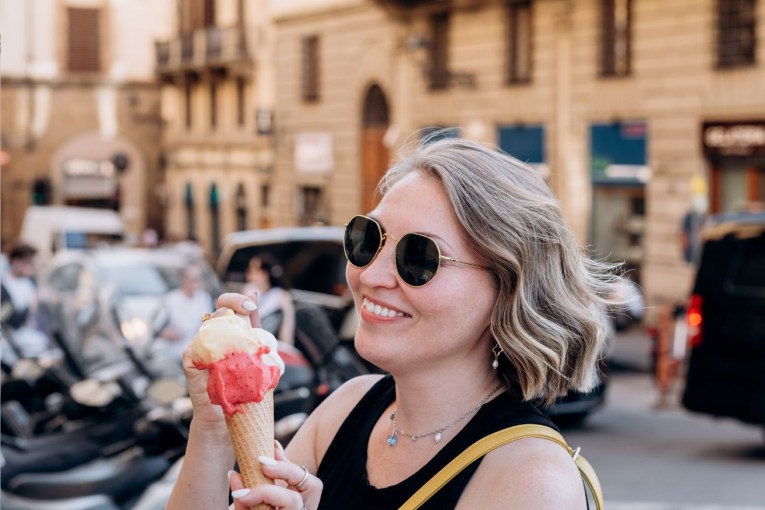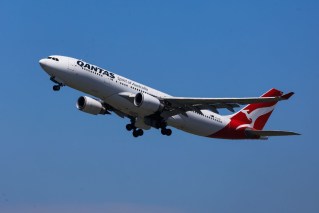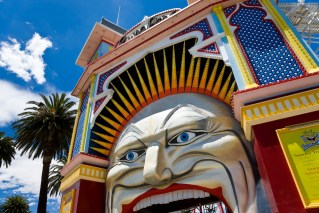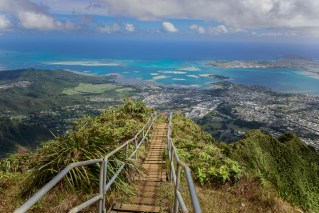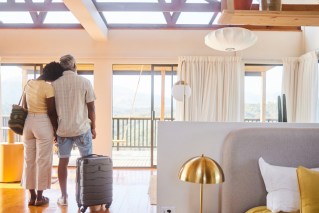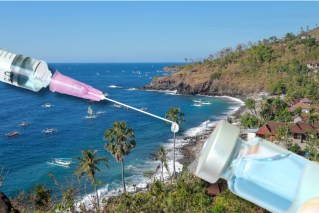What luxury – and sustainability – looks like now
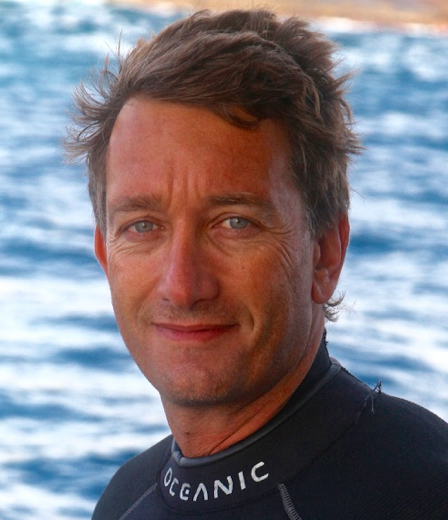
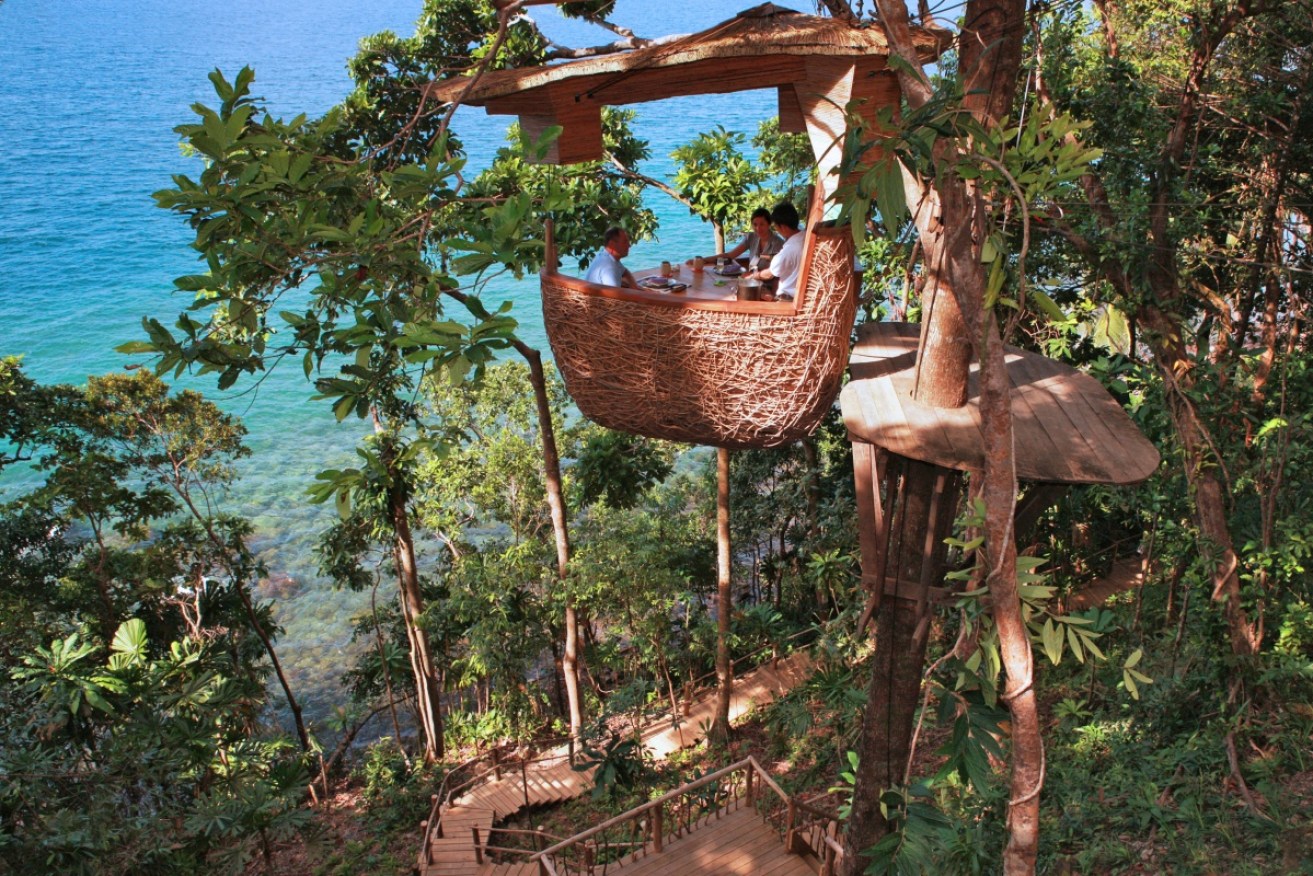
Treepod dining at Soneva Kiri in Thailand.
What do overwater bungalows in the Maldives, the ladders-as-shelves-in-bathroom trend and barefoot luxury have in common?
They were all apparently introduced by one couple: Sonu Shivdasani and Eva Malmström Shivdasani, the Brangelina of the hotel world – whose past guests include the real Brangelina, Madonna, Gwyneth Paltrow and a host of really rich people.
The Shivdasanis’ own story reads like a fairytale for the wealthy. A graduate of Eton and Oxford, Sonu met Eva, a Swedish model, on a yacht in Monte Carlo. They fell in love, got married and started
building environmentally friendly luxury resorts together.
Soneva Fushi, regarded as the first luxury resort in the Maldives, opened in 1995. In 2001, the couple followed up with Soneva Gili – the Maldives’ first 100 per cent overwater resort, with the islands’ first wine cellar.

A four-bedroom villa at Soneva Kiri. Photo: Asit Maneesarn
By then, the power couple had launched their second hotel brand, Evason, in Vietnam. Vietnam was also where they started their third and best-known hotel brand, the ultra-luxurious Six Senses, in 2004. It now has 18 resorts and spas in trophy destinations such as Gstaad, Crete and the Seychelles.
In 2012, the Shivdasanis sold Six Senses and Evason to focus on their
first love, the Soneva resorts in the Maldives and Thailand, and on their green credentials. According to Soneva’s recent 111-page sustainability report, its resorts recycle three-quarters of the waste they produce, are self-sufficient for water and turn used cooking oil into biofuel for their vehicles.
But sustainability reports are often designed to impress and “greenwashing” – misleading consumers with planet-saving policies – is endemic in the hotel industry.
To see if Soneva’s walk matched its talk, I went to Koh Kood, a sparsely populated and mostly undeveloped tropical island on the Cambodian maritime border in far eastern Thailand. There, on a forested headland that juts out into the water, is Soneva Kiri – an A-list bolthole where the cheapest room will set you back $4700 a night during peak season.
Bigger than Texas
On arrival, two things strike me about Soneva Kiri. First, it’s massive: 400 hectares. But the grounds are not covered in water-greedy gardens or golf links. Instead, they’re jungle, as nature intended.
“We don’t even cut the branches of trees without careful consideration,” the introduction to Soneva’s sustainability report states.
The second thing to stand out are the 36 villas: they, too, are massive. I stayed in the smallest: a Bayview Pool Villa Suite with 464 square metres of living space – eight times the size of my two-bedroom unit in Sydney. Soneva Kiri’s largest villas, eight six-bedroom clifftop residences, each covers 2000 square metres.
Constructed from local timber, driftwood and bamboo, my villa looks a bit Robinson Crusoe-esque, but on a Macquarie Bank budget.

An aerial view of the Bayview Pool Villa suite. Photo: Supplied/Soneva Kiri
In the main bedroom, a leather trunk at the foot of the four-poster bed conceals a flat-screen TV that pops up with a touch. Window walls open onto sprawling decks and a wraparound oasis swimming pool.
I’m disappointed there is no waterslide from my villa’s rooftop into the sea, as at Soneva Javi – the company’s newest property, in the Maldives. But I do find solace in the walking track behind my pool that leads to a private beach and calm harbour.
Every villa comes with a pair of mountain bikes and an electric buggy.
The bikes are obviously greener but hooning around the resort in the
buggies is plain fun. So is catching a ride on a slick leather-trimmed speedboat to Soneva’s private beach club in a neighbouring cove, catching a flick at the moonlight cinema and visiting the chocolate room: a refrigerated glass chamber crammed with the finest handmade chocolates, macarons and 60 bespoke ice-cream flavours.
“The kids go crazy in here,” an attendant says. “When parents ask their Mr Friday [Soneva’s name for its butlers] where their kids are, the first thing they do is call the chocolate room.”
How is this airconditioned luxury environmentally friendly?
According to Soneva’s sustainability report, the company emits 34
tonnes of carbon a year. Of that, 70 per cent is attributed to guests’ air travel, which cannot be mitigated. Of the remainder, two-thirds is
power use, which is drawn from the grid and roughly the same at Soneva Kiri as any other property of similar size and capacity.
The last 10 per cent of Soneva’s carbon footprint comes from food, ground travel and freight. Soneva Kiri certainly scores high here, growing its own vegetables and making biofuel.
But even if emissions in these categories are cut by 50 per cent (a big call), Soneva hotels would be only 5 per cent more sustainable than their competition.
When I pose this conundrum to Soneva Kiri environment officer Eline
Postma, she takes me to a clearing in the jungle not far from my vila.
There I see ponds covered in lily pads, with birds, flowers, butterflies and fish.
“You want proof of our green credentials, well you’re standing on it,”
Ms Postma said. “Look around you. This may look like a healthy wetland but it’s our sewage treatment plant. We dig these holes, pump our sewage in and utilise biological agents like fish, birds, insects and plants to recycle it for gardening.
“I’ve been to so many resorts where I see sewerage pipes going right into the sea. We could do the same, no one would know,” she adds.
“But as a marine biologist, I’ve seen the effects of nutrification on coral ecosystems when it comes into contact with untreated sewage, and I know the coral in our bay is healthy.”

Movies by moonlight at Soneva Kiri. Photo: Paul Raeside
On my last night at Soneva Kiri, I meet general manager Francisca Antunes at The View, a cantilevered bar that hangs over the edge of a cliff with breathtaking views of the Gulf of Thailand.
Ms Antunes is an atypical hotel manager – a straight shooter who’s not worried about voicing her opinion.
“Many luxury resorts today talk about sustainability but few actually do anything about it on a day-to-day basis,” she said.
“But we do. Look at the way we build our villas and public areas. Not
a drop of varnish. All this wood would last twice as long if it were
treated, but that would mean thousands of litres of paint ending up in
the soil and water.
“Maybe we are not 100 per cent sustainable or self-sufficient. But we
try 99 per cent harder than the rest.”
Need to know
Accommodation at Soneva Kiri starts from about $1500 per room per night.
